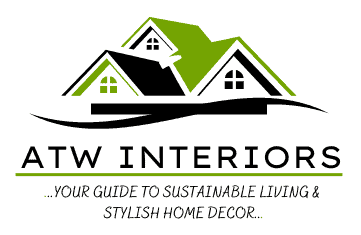The Pros and Cons of Outdoor Gardening for Apartments
Have you ever felt the urge to connect with nature amidst the concrete jungle of garden apartments in urban areas? Imagine having a beautiful garden where you can surround yourself with outdoor plants and truly feel connected to the natural world. Are you looking for a fulfilling hobby that allows you to escape the confines of your living space and immerse yourself in the wonders of container gardens and outdoor plants?
If you live in urban areas and don’t have access to a traditional garden, patio bag gardening or container gardens in pots could be the perfect solution for your outdoor planting needs. Here are some patio gardening tips to help you get started with patio umbrella gardening and low maintenance patio plants.
While apartment living may present challenges, there are undeniable benefits to cultivating container gardens and planting outdoor plants right outside your doorstep in your outdoor area. The act of planting and tending to container gardens not only offers a connection to nature but also provides a sense of accomplishment and satisfaction as you witness the growth and beauty of indoor apartment gardening that unfolds before your eyes.

However, it’s important to acknowledge the limitations that come with apartment gardening, especially when it comes to container gardens and planting in pots. But with some creativity and planning, you can still grow your own food. Limited space can pose a challenge when it comes to planting food and flowers, requiring creative solutions such as vertical gardens or container gardening to minimize waste.
Balancing the pros and cons of container gardens will help you determine if outdoor planting is the right fit for your lifestyle and preferences. Whether you’re growing food or flowers, container gardens in Ballard can be a great option.
By weighing these factors, you’ll gain insights into whether this indoor apartment gardening green endeavor aligns with your aspirations and brings joy to your garden apartments, container gardens, and garden units urban dwelling.
Advantages of Garden Apartments: Lower Rent, Expenses
Living in a small apartment often means dealing with limited floor space and finding creative ways to make the most of small spaces. One solution to enhance your living area is to incorporate container gardens. These container gardens are perfect for growing food and can be placed on balconies or windowsills.
With garden apartments, you can enjoy the benefits of having fresh produce right at your fingertips, even in a small living space. One solution to enhance your living area is to incorporate container gardens. These container gardens are perfect for growing food and can be placed on balconies or windowsills.
With garden apartments, you can enjoy the benefits of having fresh produce right at your fingertips, even in a small living space. One solution to enhance your living area is to incorporate container gardens. These container gardens are perfect for growing food and can be placed on balconies or windowsills.
With garden apartments, you can enjoy the benefits of having fresh produce right at your fingertips, even in a small living space. One solution to enhance your living area is to incorporate container gardens. These container gardens are perfect for growing food and can be placed on balconies or windowsills. With garden apartments, you can enjoy the benefits of having fresh produce right at your fingertips, even in a small living space.
One solution to enhance your living area is to incorporate container gardens. These garden units are perfect for growing food and can be placed on balconies or windowsills. With garden apartments, you can enjoy the benefits of having fresh produce right at your fingertips, even in a small living space. One solution to enhance your living area is to incorporate container gardens.
These garden units are perfect for growing food and can be placed on balconies or windowsills. With garden apartments, you can enjoy the benefits of having fresh produce right at your fingertips, even in a small living space. However, garden apartments offer unique advantages when it comes to food, flowers, and waste that can make apartment living more enjoyable and affordable.
Lower Monthly Rent
One of the significant advantages of garden apartments is that they often come with lower monthly rent compared to other types of apartments. Additionally, garden apartments provide a great opportunity for growing and cultivating food. Additionally, garden apartments provide a great opportunity for growing and cultivating food.
Additionally, garden apartments provide a great opportunity for growing and cultivating food. Additionally, garden apartments provide a great opportunity for growing and cultivating food. Additionally, garden apartments provide a great opportunity for growing and cultivating food. Additionally, garden apartments provide a great opportunity for growing and cultivating food.
This is because garden apartments are usually located on the ground floor or have easy access to outdoor spaces, making them less desirable for some tenants looking for food. As a result, landlords tend to offer these garden apartments at a more affordable price point, making them a great option for indoor apartment gardening.
Reduced Utility Costs
Apart from lower rent, garden apartments can also help save money on utility costs. These garden apartments, also known as garden units, often feature natural insulation provided by surrounding greenery. Apartment gardening, also known as container gardens, is a popular activity in these unique dwellings.
The plants act as a barrier against extreme temperatures, keeping the apartment cooler in summer and warmer in winter. Consequently, residents of garden apartments may find themselves using less energy for heating or cooling their homes, leading to reduced utility bills. Apartment gardening can help create a more sustainable living environment.
Promotes Physical and Mental Well-being
Access to green spaces, such as apartment gardens, has been proven to have numerous benefits for physical and mental well-being in garden apartments. Living in a garden apartment provides residents with immediate access to gardening and outdoor space right outside their doorstep. Garden apartments offer a unique living experience, combining the convenience of apartment living with the benefits of having a garden.
Garden apartments offer a unique living experience, combining the convenience of apartment living with the benefits of having a garden. Garden apartments offer a unique living experience, combining the convenience of apartment living with the benefits of having a garden. Garden apartments offer a unique living experience, combining the convenience of apartment living with the benefits of having a garden.
How Many Bedrooms Do Garden Apartments Typically Have?

Whether it’s enjoying morning coffee in an apartment garden surrounded by blooming flowers or taking an evening stroll through lush gardens after a long day at work, these green spaces can enhance overall quality of life.
Growing Your Own Produce
Another advantage of having an apartment garden is the opportunity it provides to grow your own produce. By utilizing small balcony or patio spaces creatively, you can cultivate herbs, vegetables, and even some fruits right at home in your apartment garden.
Not only does apartment gardening allow you to enjoy fresh and organic produce without any harmful pesticides or chemicals, but it can also help reduce grocery expenses. With a garden apartment, you can have your own little green space right at home. Imagine plucking juicy tomatoes or fragrant basil leaves from your own apartment garden whenever you need them for cooking.
Challenges of outdoor gardening in apartments: Dealing with dampness
Moisture control is crucial when gardening in an apartment setting. With limited space and often unfavorable environmental conditions, managing the level of moisture becomes a significant challenge for apartment gardeners. Here are some key points to consider when dealing with dampness in outdoor gardening:
Proper drainage systems are essential to prevent water damage indoors.
One of the main challenges faced by apartment gardeners is ensuring proper drainage to prevent water damage inside their living spaces. Without adequate drainage, excess water in an apartment garden can seep into floors or walls of a garden apartment, leading to structural issues and potential mold growth. To address concerns about apartment gardening, it is important to implement effective drainage systems in garden apartments such as.
- Installing raised beds or containers with drainage holes.
- Using permeable materials like gravel or pebbles at the bottom of pots in a garden apartment to facilitate water flow.
- Regularly checking and clearing any clogged drains or gutters near your garden area.
By focusing on efficient drainage solutions, apartment gardeners can minimize the risk of water-related problems within their living spaces.
Choosing suitable plants that thrive in moist conditions is important for success.

When gardening outdoors in apartments, selecting plants that can adapt well to moist conditions becomes crucial. Some plant varieties naturally flourish in damp environments, making them ideal for garden apartments, while others may struggle or even perish due to excessive moisture. Consider these options for plants that thrive in moist conditions, perfect for your garden apartment.
- Ferns: Known for their love of humidity and moisture, ferns make an excellent choice for apartment gardens.
- Garden apartment: Hostas, these shade-loving plants, can add beauty to your outdoor space. They have a high tolerance for damp soil.
- Astilbes: The best patio plants, astilbes, with their feathery plumes and preference for moist soil, bring color and texture to any garden corner.
By carefully choosing plants that enjoy moist environments, you increase your chances of achieving a thriving outdoor garden despite the challenges posed by dampness.
Regular monitoring and maintenance are necessary to prevent mold or mildew growth.

In an apartment setting, where dampness can be more prevalent, regular monitoring and maintenance are essential to prevent the growth of mold or mildew. These fungi thrive in moist conditions and can not only damage your plants but also pose health risks to you and your neighbors. Here are some steps you can take to keep mold and mildew at bay:
- Inspect your plants regularly for any signs of fungal growth, such as white or black spots on leaves.
- Ensure proper air circulation around your garden by spacing out plants appropriately.
- Avoid overwatering and allow the soil to dry slightly between watering sessions.
- If mold or mildew appears, promptly remove affected plant parts and consider using organic fungicides.
By staying vigilant and implementing preventive measures, apartment gardeners can maintain a healthy environment for their plants while minimizing the risk of mold or mildew infestations.
Tips for successful apartment-friendly container gardens

Selecting the right containers is key for apartment gardening success.
Selecting the right containers is essential. Since space is often limited in apartments, choosing containers that are suitable for your plants and your living situation can make all the difference. Consider these tips when selecting containers for your apartment-friendly garden:
- Opt for lightweight containers: Since you’ll be moving them around and possibly placing them on balconies or windowsills, it’s important to choose lightweight pots that are easy to handle.
- Ensure adequate drainage: Look for containers with drainage holes at the bottom to prevent waterlogged soil. Alternatively, you can use self-watering pots that have a built-in reservoir system.
- Size matters: Consider the size of your plants and their root systems when choosing containers. Make sure there’s enough space for growth without overcrowding.
Use lightweight potting soil mixes that provide adequate drainage and nutrients.
In order to create a thriving container garden in your apartment, using the right potting soil mix is crucial. Here are some tips to ensure you’re using the best soil mix:
- Lightweight and well-draining: Opt for potting soil mixes specifically designed for container gardening. These mixes are lighter than traditional garden soil and allow excess water to drain properly.
- Nutrient-rich: Look for potting soils that contain organic matter or compost, as they provide essential nutrients to support plant growth.
- Consider succulents: If you’re interested in growing low-maintenance plants like succulents, cacti, or herbs indoors, consider using a specialized succulent potting mix. These mixes have excellent drainage properties suited specifically for these types of plants.
Utilize vertical space by incorporating hanging baskets or wall-mounted planters.

When working with tight spaces in an apartment, utilizing vertical space can greatly expand your gardening possibilities. Here’s how you can make the most of vertical gardening:
- Hanging baskets: Hang colorful flowering plants or trailing vines in hanging baskets from your balcony, ceiling, or window frames. This not only adds beauty but also maximizes the use of available space.
- Wall-mounted planters: Install wall-mounted planters on your balcony or walls to grow herbs, small vegetables, or decorative plants. These garden apartments planters can be easily attached and offer a stylish way to incorporate greenery into your apartment.
Regularly monitor watering needs as containers tend to dry out faster than traditional gardens.
In an apartment setting, containers have a tendency to dry out faster than plants grown in traditional gardens. To ensure the health and vitality of your container garden, follow these watering tips:
- Consistent monitoring: Regularly check the moisture levels of your soil by sticking your finger about an inch deep into it. If it feels dry at that depth, it’s time to water.
- Water deeply: When watering, make sure to thoroughly moisten the soil until water drains out from the bottom of the container. This ensures that roots receive enough moisture.
- Consider self-watering systems: If you often forget to water your plants or are frequently away from home, self-watering systems can help maintain consistent moisture levels in your containers.
By following these tips for successful apartment-friendly container gardens, you’ll be well on your way to creating a thriving urban oasis within the limited space of your apartment.
Growing a garden in shade: Five debunked sunlight myths
Contrary to popular belief, many plants thrive in partial shade. Understanding the different light requirements of plants can help you choose suitable varieties for shaded areas.
Myth 1: Plants need full sun to grow
While it’s true that some plants require direct sunlight for optimal growth, many others can flourish in partial shade. In fact, certain vegetables, herbs, and flowers actually prefer cooler, shadier environments. For example:
- Leafy greens like lettuce and spinach thrive in partial shade.
- Herbs such as mint and parsley can tolerate less sunlight.
- Flowers like impatiens and begonias bloom beautifully in shady spots.
Myth 2: Shade means no sunlight at all
Shade does not equate to complete darkness. Even in shaded areas, there is still some level of sunlight reaching the ground. It may be diffused or filtered through trees or buildings, but it is sufficient for many plants to carry out photosynthesis. By understanding the intensity and duration of available light, you can select the right plants that will thrive under these conditions.
Myth 3: Sun-loving plants cannot grow in shade
While it’s true that sun-loving plants like tomatoes generally require full sun for optimal fruit production, there are ways to provide them with enough light even in a shady environment. Reflective surfaces or strategically placed mirrors can redirect sunlight into darker corners of your garden. This technique helps ensure better plant growth by increasing the overall light exposure.
Myth 4: All shade is created equal
Not all shades are alike; they vary depending on factors such as time of day and surrounding structures. Morning shade differs from afternoon shade due to changes in the angle of the sun. Shadows cast by nearby buildings or trees can create varying degrees of shade throughout the day. Understanding these nuances will help you select plants that thrive in specific shade conditions.
Myth 5: Shade means limited plant options
Having a shaded garden doesn’t mean you are limited in your plant choices. There is a wide range of plants that can thrive in partial shade and even prefer it. Some examples include:
- Ferns: These luscious green plants add texture and beauty to shady areas.
- Hostas: With their vibrant foliage, hostas are perfect for shaded gardens.
- Astilbes: These flowering perennials bring color to shady spots with their feathery plumes.
Privacy considerations for apartment gardens

Creating a private oasis in an apartment garden is essential for many individuals seeking tranquility and seclusion. While living in close proximity to neighbors can make privacy a challenge, there are several strategies you can employ to ensure your outdoor space remains your own personal retreat.
1. Strategically placed tall plants or trellises
One effective way to establish privacy on balconies or patios is by strategically placing tall plants or trellises. These natural barriers not only provide visual screening but also add a touch of greenery to your space. Consider using plants such as bamboo, evergreens, or climbing vines like clematis or jasmine. By positioning them along the edge of your balcony or patio, you can create a sense of seclusion without compromising on aesthetics.
2. Bamboo screens or fabric curtains
If you desire privacy without completely obstructing airflow, installing bamboo screens or fabric curtains can be an excellent solution. Bamboo screens offer a natural and rustic look while allowing air to circulate freely through the gaps between the stalks. On the other hand, fabric curtains provide a softer touch and come in various colors and patterns to match your style preferences.
3. Decorative fencing or lattice panels
Another option to consider is incorporating decorative fencing or lattice panels into your apartment garden design. These elements not only offer privacy but also serve as attractive features that enhance the overall ambiance of your outdoor space. You can choose from a variety of materials such as wood, metal, or vinyl based on durability and aesthetic appeal.
4. Tall planters or raised beds
Incorporating tall planters or raised beds can help create a visual barrier from neighboring apartments while adding depth and dimension to your garden area. These garden apartment structures allow you to grow an assortment of plants, including flowers, herbs, vegetables, and small shrubs at eye level. This effectively shields you from prying eyes while enjoying the outdoors. They can be easily moved or rearranged to suit your changing needs.
Maintaining privacy in an apartment garden is crucial for ensuring a peaceful and personal outdoor experience. By implementing these strategies, such as utilizing tall plants or trellises, installing bamboo screens or fabric curtains, incorporating decorative fencing or lattice panels, and using tall planters or raised beds, you can create a private sanctuary that offers respite from the outside world within the confines of your apartment’s outdoor space.
Enhancing wellbeing through outdoor gardening in apartments

Living in an apartment doesn’t mean you have to miss out on the joys of gardening. With apartment gardening, you can create a beautiful and thriving green space right in your own home. Not only does this allow you to enjoy the beauty of nature, but it also offers numerous benefits for your overall wellbeing.
Gardening reduces stress and promotes relaxation.
One of the greatest advantages of outdoor gardening in apartments is its ability to reduce stress and promote relaxation. Spending time surrounded by plants and greenery has a calming effect on our minds and bodies. The act of nurturing plants and watching them grow provides a sense of accomplishment and fulfillment.
Imagine coming home after a long day at work to your garden apartment, stepping out onto your balcony or into your small outdoor area, and being greeted by the sight of vibrant flowers or lush herbs. The simple act of tending to these plants can help melt away the stresses of the day, allowing you to unwind and find peace within nature’s embrace.
Exposure to natural sunlight increases vitamin D production, boosting mood and overall health.
Another incredible benefit that outdoor gardening brings to apartment dwellers is increased exposure to natural sunlight. Sunlight is essential for our bodies as it helps produce vitamin D, which plays a crucial role in maintaining good health. Vitamin D not only strengthens bones but also improves mood and boosts overall wellbeing.
By spending time outside caring for your garden or simply enjoying your outdoor space, you allow yourself to soak up those beneficial rays. This can have a positive impact on your mental state, helping combat feelings of depression or seasonal affective disorder (SAD). So why not bask in the sun while tending to your vertical garden or planting some colorful flowers?
Engaging in physical activity while gardening improves cardiovascular health and strength.
Gardening isn’t just about nurturing plants; it’s also an excellent way to engage in physical activity without having to leave your apartment. Whether you’re bending down to plant seeds, carrying bags of soil, or watering your plants, these actions require physical effort and can contribute to improved cardiovascular health and strength.
By incorporating gardening into your routine, you can enjoy the benefits of exercise while tending to your green oasis. Plus, it’s a fun and rewarding way to stay active without having to hit the gym. So grab your vertical planters or create a balcony garden with hanging baskets and get ready to break a sweat while cultivating plants’ beauty.
Growing plants indoors can improve air quality by removing toxins and increasing oxygen levels.

While outdoor gardening is fantastic, indoor apartment gardening also offers its own set of advantages. One significant benefit is the improvement in air quality that comes from growing plants indoors. Plants act as natural air purifiers by absorbing harmful toxins and releasing fresh oxygen into the environment.
If you have limited outdoor space or prefer an indoor garden setup, consider investing in houseplants that are known for their air-purifying properties. Spider plants, snake plants, and peace lilies are just a few examples of indoor plants that effectively remove pollutants from the air. Not only will they enhance the aesthetics of your living space but they’ll also provide cleaner and fresher air for you to breathe.
Weighing the pros and cons
Now that we’ve explored the advantages and challenges of outdoor gardening in apartments, it’s time to weigh the pros and cons. While apartment gardening offers numerous benefits such as lower rent and expenses, it also comes with its fair share of challenges like dealing with dampness. However, with some careful planning and creativity, you can create a thriving apartment-friendly container garden that enhances your wellbeing.
So, if you’re ready to embark on your apartment gardening journey, here’s a call-to-action for you: Start small but dream big! Begin by implementing the tips we’ve discussed for successful container gardens. Remember that even a few potted plants can make a significant difference in your living space. Embrace the joy of nurturing nature within the confines of your garden apartment walls.

FAQs about Apartment Gardening
Can I grow vegetables in an apartment garden?
Absolutely! Many vegetables can be grown successfully in containers on balconies or windowsills. Tomatoes, peppers, lettuce, herbs, and even root vegetables like carrots are ideal choices for apartment gardens.
How often should I water my apartment garden?
The watering frequency depends on various factors such as the type of plants you have and their specific needs, as well as environmental conditions like temperature and humidity. As a general rule of thumb, check the soil moisture regularly by sticking your finger about an inch deep into it. If it feels dry at that depth, it’s time to water.
What kind of soil should I use for my container garden?
Use high-quality potting soil specifically formulated for containers. This type of soil provides excellent drainage while retaining enough moisture for plant roots to thrive.
Can I have a compost bin in my apartment?
Yes! Composting is possible even in small spaces like apartments. Consider using indoor composting methods such as vermicomposting (using worms) or bokashi composting (using fermentation). These methods are efficient and odor-free.
How can I deal with pests in my apartment garden?
Prevention is key. Regularly inspect your plants for signs of infestation, and promptly address any issues you find. Natural remedies like neem oil or insecticidal soap can be effective against common garden pests without harming the environment or your indoor air quality.







